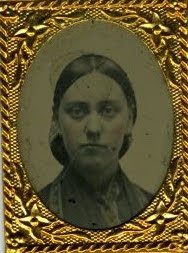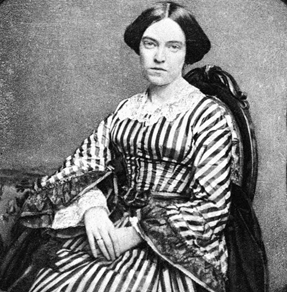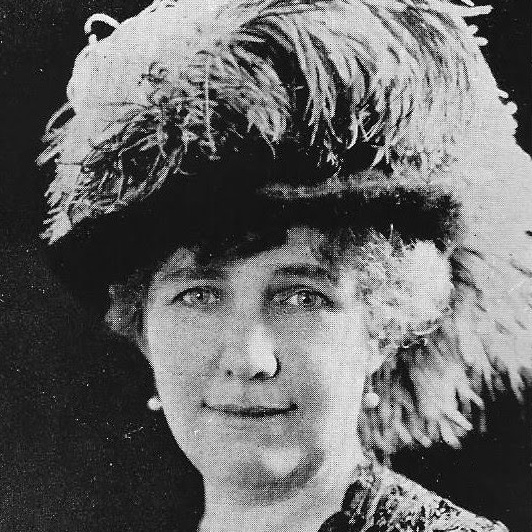At the peak of her career as a local businesswoman, Cordelia Dragon Vien (1853-1928) owned property valued at $250,000, equivalent to nearly $6.5 million today, in New Bedford’s North End. Two of her Acushnet Avenue business properties, the Cordelia Vien Theater and the Hotel Waverly, were precursors to the large-scale structures that made the Avenue distinctive.
At the peak of her career as a local businesswoman, Cordelia Dragon Vien (1853-1928) owned property in New Bedford’s North End valued at $250,000, equivalent to nearly $6.5 million today. Two of her Acushnet Avenue business properties, the Cordelia Vien Theater and the Hotel Waverly, were precursors to the large-scale structures that made the Avenue distinctive.
Cordelia was born Cordélie Quay dite Dragon to François Quay dit Dragon and Onésime Quémeneur dite Laflamme in St. Denis, Quebec, Canada on November 18, 1853. Cordelia and her family moved to Grosvenordale, Connecticut when she was 12. She remained in Grosvenordale for 15 years, working in a cotton mill as a weaver and eventually marrying Francois Vien. After six years of marriage, the couple moved to New Bedford, where Francois worked as a weaver for 20 years at the Wamsutta Mill. The frugal couple saved enough money to invest in land and buildings in the city’s North End, still barely settled and mostly undeveloped in the late 1800s. Land and real estate values rose rapidly when North End development took hold. The couple became wealthy, increased their holdings and became one of the largest property owners in the North End, particularly on both sides of Acushnet Avenue. Cordelia, who had also worked in New Bedford mills, left the factory to focus entirely on managing the Vien properties.
Retaining their New Bedford real estate, the Viens moved to Worcester where they lived for eight years and bought a hotel. They next settled in Lowell and purchased the Merrimac House there. For six years, the Viens split their time between Lowell and Lawrence, where they bought the Lawrence Opera House. Before returning to New Bedford, as she operated these other businesses throughout Massachusetts, Cordelia planned two special projects for her properties on New Bedford’s Acushnet Avenue.
By the early 1900s, the North End’s Acushnet Avenue became a center for entertainment, with more than a few theaters featuring vaudeville and other live shows. Even earlier, by 1895, New Bedford offered visitors more than 75 places to stay, including hotels and boarding houses. Cordelia joined these two trends, of entertainment and hospitality, through her vision for two of her properties located across from each other – the Cordelia Vien Theater and the Hotel Waverly.
Construction began on the Cordelia Vien Theater, located at 1157 Acushnet Avenue, in 1896. By 1909, the theater bearing Cordelia’s name opened, hosting vaudeville and other live shows, including comedy, singing and acrobatics. A 1914 announcement in Moving Picture World magazine acknowledged Cordelia’s impact on the theater business in Massachusetts, “Cordelia Vien of the Vien’s Theater of New Bedford, Mass, took a three year lease of the Opera House in Lawrence and started January 4, with programs of Universal Pictures and vaudeville. The Vien’s Theater has always been a winner and Mrs. Vien is expected to duplicate her good work at the Opera House.” Even though Cordelia and her husband Francois owned their properties jointly until his death in 1912, newspaper reports and magazine coverage consistently named Cordelia as the active property manager and business visionary throughout their business expansion. After his death, for a full 16 years before her own passing, Cordelia became the sole property owner and continued to be acknowledged for her business success. For the property across the street from the Cordelia Vien Theater, she planned the Hotel Waverly with an innovative connector to her theater.
The Hotel Waverly was located at 1162-1166 Acushnet Avenue, on the corner of Acushnet Avenue and Beetle Street. Built in 1901, the structure was designed by New Bedford architect Samuel C. Hunt with a three-story turret above its entrance. Originally planned as residential units on its upper floors with retail space on its ground floor, Cordelia oversaw its repurposing and remodeling into the Hotel Waverly in 1911, complete with a corner barroom that was operated by Cordelia’s daughter Marie-Anne Demers and her husband Joseph, along with Cordelia’s son Eugene H. Vien. A tunnel connected the hotel to the theater and allowed performers who stayed at the hotel to easily reach the theater for their performances. For their own residence, the Viens also purchased the house directly behind the hotel on Beetle Street.
Stories always surrounded and survived the Waverly, especially regarding its hotel bar. Many stories involved a large rock in its backyard that was often used as a defense for those arrested for drunkenness. The apprehended would claim that they fell hitting their head on the rock to explain why they were stumbling and disoriented. Apparently, that excuse was used so often that it became a joke in 3rd District Court. Another story told of one of several New Bedford police raids that took place there, when a woman trying to escape actually chewed off the earlobe of the North End policeman who scooped her up. Some stories involved Cordelia’s son Eugene who, instead of signing an agreement in 1914 with the striking all-male bartenders’ union, hired women to mix drinks at the hotel bar. In January 1921, Eugene also made the newspaper when he and hotel manager James H. Griffin were arrested for stealing several cases of smuggled whiskey and champagne which had been seized and stored at the U. S. Customs House during Prohibition.
In 1916, the Cordelia Vien Theater was sold to three local businessmen, who renamed it The Strand and showed mostly silent films. In 1926, the national chain E. M. Loew’s purchased it. Renovated and renamed The Center, the theater moved through different formats, from foreign films to adult movies. In 1992, the theater was bought by the Cape Verdean Association of New Bedford as a place to promote Cape Verdean culture, naming it the Cape Verdean Cultural Center. The Waterfront Historic Area League (WHALE) has partnered with the Cape Verdean Association to restore and renovate this historic vaudeville theater.
In 1922, after Cordelia became critically ill with ptomaine poisoning and a year after her son’s arrest, she sold the Hotel Waverly. It was then renamed the Hotel Touraine, lasting up through the mid-1970s. In 1990, the building was added to the National Register of Historic Places. After a 2000 renovation, it has become low-income housing and has been renamed Talbot Apartments.
About three years before her death in 1928, Cordelia was unable to walk and became increasingly unable to manage her properties. By the time of her death, she had sold about half of her real estate. Cordelia’s considerable holdings on both sides of Acushnet Avenue, including the theater and hotel, made a lasting impression on the streetscape of New Bedford’s North End.
Ann O’Leary
Information from
-
“Canada, Québec, registres paroissiaux catholiques, 1621-1979,” database with images, FamilySearch (https://familysearch.org/ark:/61903/3:1:3QS7-899Q-Q7WK?cc=1321742&wc=HCR6-FM9%3A19969701%2C19969702%2C21124003 : 16 July 2014), Saint-Denis > Saint-Denis > Baptêmes, mariages, sépultures 1843-1866 > image 358 of 737; Archives Nationales du Quebec (National Archives of Quebec), Montreal.
-
“Hotel Waverly (New Bedford, Massachusetts).” Hotel Guide, 2020, https://greathotelsinusa.com/hotel/hotel_waverly_(new_bedford,_massachusetts)/142802012422509/?lang=en.
-
Maiocco, Carmen. The Avenue: Memories of Acushnet Avenue. Carmen Maiocco, 1992.
-
Morris, Brian. “Restoring a Grand Old Theater in New Bedford.” WCAI, 26 Feb. 2018, https://www.capeandislands.org/post/restoring-grand-old-theater-new-bedford#stream/0.
-
Moving Picture World, vol. 19, no. 3, 17 Jan. 1914. Internet Archive, https://archive.org/details/movingpicturewor19newy/page/n5/mode/2up.
-
“Mrs. C. D. Vien Is Dead at 75.” The Evening Standard, 16 Oct. 1928.
-
“Mrs. Vien Now Critically Ill.” The Evening Standard, 14 Mar. 1922.
-
Thomas, Joseph D., et al., editors. “Hotels.” A Picture History of New Bedford, Volume One, 1602-1925. Spinner Publications, 2013, pp. 260-261.
-
Urbon, Steve. “WHALE in Partnership with Cape Verdean Association.” SouthCoast Today, 31 Jan. 2018, https://www.southcoasttoday.com/news/20180131/whale-in-partnership-with-cape-verdean-association.
-
Wilson, Earle D. “Cabaret in North End Was Always Good for Stories.” Sunday Standard-Times, 27 Oct. 1946, p. 28.





